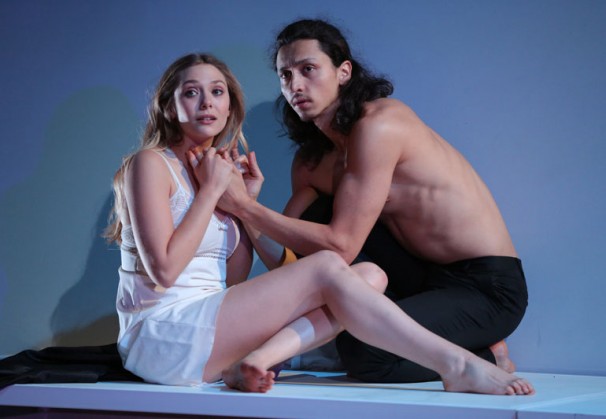
“But soft, what light through yonder window breaks?” “Romeo, O Romeo, wherefore art thou Romeo?” “A plague on both your houses.”
It is nearly impossible to leave a production of “Romeo and Juliet” without one of these famous lines echoing in your head. William Shakespeare’s play about tragic young love and feuding families contains some of his most well-known phrases.
However, after seeing the Classic Stage Company’s production of “Romeo and Juliet,” running through Nov. 10, these are not the words viewers will remember upon exiting the theater. Instead, Friar Laurence’s Act II soliloquy on the properties of herbs is the scene that is most memorable. Delivered by Academy Award-winner William Hurt, this often forgotten speech is the first moment of beautiful theater in this heavy-handed production populated with an overwhelmingly unremarkable cast.
Unfortunately, this production of “Romeo and Juliet” feels a bit lost. The first half of the show seems to draw heavily on Baz Luhrmann’s film adaptation of the play. The characters speak Spanish, the Capulet’s party turns into a rave and Tybalt and Lady Capulet definitely have an intimate relationship. As the play progresses, though, it loses all sense of direction. The famous fight between Mercutio and Tybalt begins as a simple fist fight, but then Tybalt picks up a blood packet from a silver bucket downstage center and slams it against Mercutio’s chest in a clumsy and awkward maneuver, splattering blood to let the audience know Mercutio is fatally wounded. The sloppiness of this scene persists throughout the show.
Romeo, played by NYU alumnus Julian Cihi, is usually a whiny character. However, Cihi never allows his Romeo to be anything more than whiny, keeping him static instead of turning him into a romantic hero. T.R. Knight’s Mercutio is similarly one-note — he portrays his anger well, but angry is all he does. Juliet, played by Elizabeth Olsen, is the best of the three leads. She feels like a Juliet for the 21st century, bouncing from excited to lovestruck to depressed from one instant to the next, similar to an actual teenage girl.
The dynamic between the three is strained at best, though, and almost awkward to watch. The only real theatrical force in the play is William Hurt’s Friar Laurence. Whenever he is on stage, it is impossible to tear your gaze from him. His voice, as he delivers Shakespeare’s words, rises and falls with the cadence of the verse.
Hurt gives a masterful performance. Sadly, the rest of the cast is not up to par. At times, it feels as though the actors don’t understand what they are saying. When it’s performed well, Shakespeare should feel almost like the English we speak today. Instead, the words in this “Romeo and Juliet” are nearly incomprehensible. Because the actors fail to interpret Shakespeare’s verse, It is actually difficult to follow the plot of the most well-known love story in the world.
A version of this article appeared in the Wednesday, Oct. 23 print edition. Dylan Jarrett is books/theater editor. Email her at [email protected].
Note: This review was based on a preview of “Romeo and Juliet,” written before William Hurt had been replaced by Daniel Davis.























































































































































